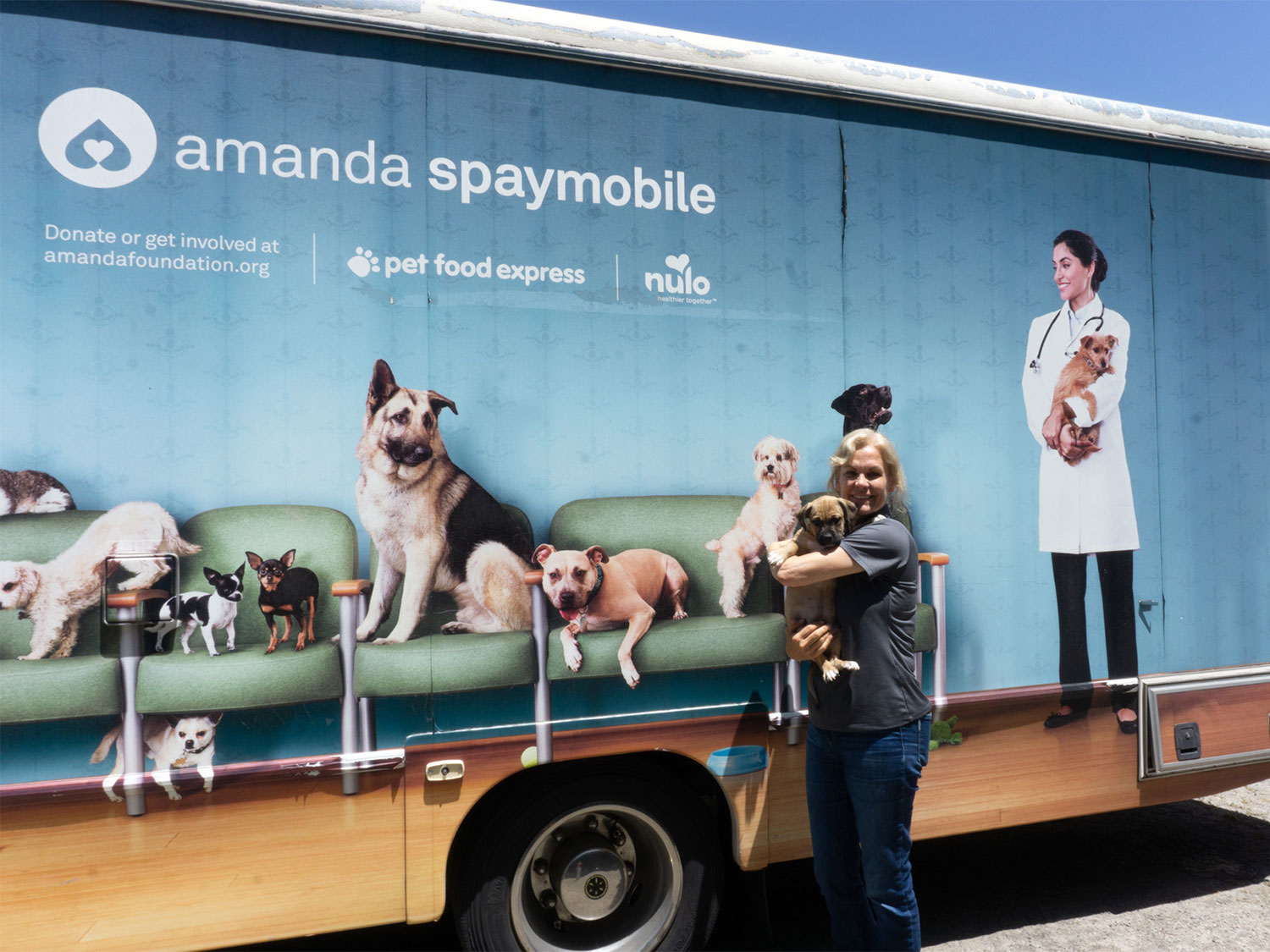Teri Austin, president of the Amanda Foundation, walks through the 100-year-old building in Beverly Hills that she turned into her animal rescue, pointing out dogs, cats, puppies and kittens in need. Animals need surgeries and vaccines, for which the nonprofit counts on donations. But funding is running thin as Austin and her team try to combat Los Angeles’ overpopulation of stray dogs and cats. She walks to the end of a hallway and points to a room where newborn black kittens are quarantined because their immune systems are vulnerable, as she remarks that kitten season is in full swing. They have kennels of dogs of varying ages down another hallway, and she points to a goldendoodle—an expensive dog among breeders. There are newborn puppies and elderly dogs who had homes, but in one way or another, ended up here.
Every day, perfectly healthy and adoptable dogs are surrendered to shelters and rescues because there’s no room for them where they came from. And every day, more and more dogs are euthanized in these institutions. Shelters cannot turn down owners who want to surrender their dogs, so they eventually must make room. Though rescues do their part in removing vulnerable dogs from overcrowded shelters, they too are beginning to run out of space and, if not space, funding.
Austin explained that the problem lies in overpopulation. There are more dogs and cats on the streets than there are available homes.
“Amanda’s mission is to rescue dogs and cats from city and county shelters and then find them loving new homes,” she said. “But we weren’t doing that for very long before we realized that if we weren’t working towards stopping the sheer numbers of animals that it was an unsolvable problem.”
One problem is misinformation about breeding. Austin is passionate about educating the public about the benefits of rescuing versus buying from a breeder. One of the main benefits, as she explained, is that rescue dogs typically have fewer medical issues.
“The doodle phase and the French bulldog phase kind of gets us away from the idea of just getting a mixed breed dog, which, on average, is going to be a healthier animal,” Austin explained. “The purebred animals do have more specific problems.”
She noted that the popular breed French bulldogs must be born by a cesarean section because they’re bred so that their heads don’t fit through the birth canal. They’re also one of the breeds with the most medical issues, often facing respiratory issues and a plethora of other health concerns. This adds to the already steep price of buying a “designer dog.”

When families are looking to adopt a puppy, she urges them to look at rescues like the Amanda Foundation or even shelters.
“Especially when people have kids, we say, ‘You know what, those kids are not going to care whether it’s a designer dog or not, just come look,’” she said. “And all you’re looking for is a family pet. You’re not looking for a show dog.”
Another problem is unaltered dogs and cats, or those that haven’t been spayed or neutered. “A lot of people who love animals don’t realize that spaying and neutering is the answer because we will never adopt out enough animals to change the dynamic,” said Austin.
The Amanda Foundation is more than just a rescue; it’s also the only nonprofit animal charity in the United States with a full-service veterinary practice. Having a vet on-site is so integral to the work that this nonprofit does because it allows patients to receive care more quickly, without having to be transported. Additionally, their hospital is open to pets who already have loving homes. The money owners would normally spend on a for-profit veterinarian helps the Amanda Foundation fund the “Spaymobile,” a free mobile clinic that provides spay, neuter and vaccine services to underserved communities. At the on-site medical clinic, Dr. Benjamin Glicklin— a graduate of the UC Davis School of Veterinary Medicine, which was ranked #1 in the world— oversees the safety and care of patients.
In the springtime, because of overbreeding and unspayed/unneutered stray cats, rescues like the Amanda Foundation receive an influx of kittens. In Los Angeles, 90% of cats who enter shelters arrive at this time of year. This is better known as kitten season, and it’s one of the most important times of year to get involved or donate. Aside from a warm place to stay, kittens need several medical services when they enter a rescue such as vaccines, deworming and of course, spaying and neutering. The Amanda Foundation is hoping to raise $5,000 to cover the needs of kittens in the next few months. Austin urges the community to step in. “If there’s someone out there who would like to support, if you want to see your family name on a kennel, or an operating room, please call me.”
Also motivated by her passion for education and serving underprivileged communities is a program she leads at Edwin Markham Middle School in Watts. Once a month, Austin teaches students about careers in veterinary medicine and the importance of things like healthy food and exercise for their pets. Sometimes, she brings rescue dogs into the school, and students have the opportunity to perform an ultrasound with real veterinary equipment.
Through programs like this, the Amanda Foundation seeks to break stereotypes about pet ownership. “Working with Amanda has taught me that people who love animals are everywhere. There isn’t a culture or an income level that doesn’t care. A lot of what happens is needs-driven. And so, if you can go in and help people, I have had nothing but the best response,” said Austin.







